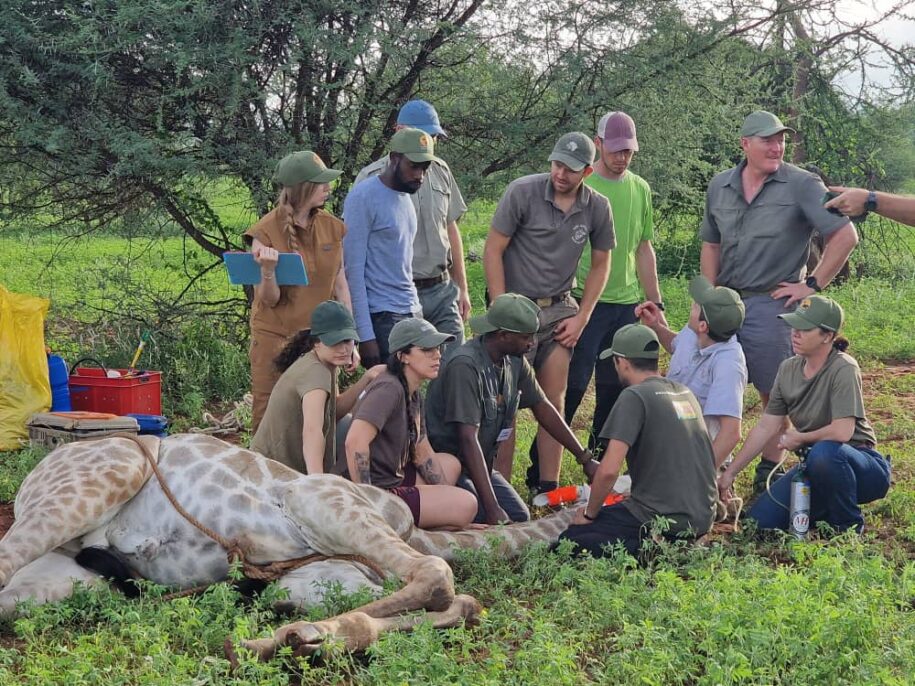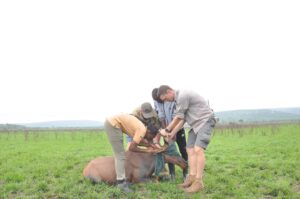Volunteering in Rwanda can deepen your connection to this compact nation. It allows you to engage with communities in ways that typical tourism cannot offer. Rwanda attracts people not only for its mountain gorillas and scenic lakes, but also for its resilience.
After the 1994 genocide, communities rebuilt with a shared focus on healing, education, and sustainability. Today, that spirit shapes how guests participate in meaningful exchange.
Community-based tourism in Rwanda reflects this collaborative mindset. It invites visitors to contribute time and skills to locally-led efforts. These might involve education programs, conservation projects, or small business development. What matters is how the work fits into the community’s priorities.
Volunteering in Rwanda often raises ethical questions. Who benefits? Who decides what’s needed? How can someone offer help without causing harm? Rwanda’s structured approach to community engagement offers thoughtful answers to these concerns.
This guide explores practical ways to contribute during your stay, without romanticising the work. It looks closely at ethical volunteering in Rwanda and how to approach it with humility, preparation, and respect.
When done with care, giving back in Rwanda can be a powerful part of your travel experience. It can also leave a lasting impact long after you leave the country.
What Ethical Volunteering in Rwanda Means
Ethical volunteering in Rwanda starts with humility. It requires you to listen before acting and to follow local leadership rather than personal assumptions.
Responsible projects rely on long-term strategies, not short-term presence. Communities set the goals. Visitors support them by bringing specific skills or labor where requested.
In tourism, the term “voluntourism” describes shallow experiences that prioritise the guest over the community. These often create dependency, displace local workers, or disrupt daily life.
Ethical volunteering does the opposite. It integrates into existing systems. It supports what is already working, instead of reinventing structures for short-term gain.
Cultural sensitivity also plays a key role. Simple actions like learning a few phrases in Kinyarwanda or dressing appropriately show respect and build trust.
Programs rooted in ethical principles encourage mutual learning. You might come to teach, but you will likely leave having learned much more.
Every ethical project shares common values. Transparency. Consent. Local control. Measurable benefit. These are not buzzwords. They are benchmarks that shape how your involvement should look and feel.
Understanding these values helps you avoid harm, even unintentionally. It also helps you make decisions that lead to genuine, lasting contributions.
How to Find Ethical Opportunities for Volunteering in Rwanda
Finding the right project in Rwanda begins with research. Ethical programs do not advertise glossy experiences. They focus on sustainable outcomes and strong community partnerships.
Start by identifying organisations registered locally. These groups understand the social structure and can speak directly to the needs of their communities.
Always ask how the program supports local ownership. Ethical models rely on collaboration with Rwandan institutions, not imported agendas. If locals run the program, that’s a strong indicator.
Review how volunteers contribute. Skill-based volunteering holds value. Whether you’re a teacher, nurse, or web designer, your work should match actual requests from the community.
Transparency is key. Reputable programs share clear budgets, describe their impact, and welcome questions. If you can’t find this information, move on.
Program length also matters. Projects that accept volunteers for only a few days often disrupt routines or create unrealistic expectations. Choose placements with structured timelines and proper orientation.
Speak to past participants. First-hand insight gives you a better sense of daily responsibilities, cultural norms, and whether the program respects ethical boundaries.
Finally, consider how your money is used. Ethical programs charge fees, but that money should support local staff and resources, not profit private companies abroad.
These steps may take time, but they help ensure your involvement builds something meaningful and respectful.
Recommended Ethical Volunteer Programs in Rwanda
Rwanda supports a range of ethical volunteer projects grounded in local leadership. These programs span public health, conservation, education, and community development. Below are examples that consistently apply responsible tourism standards.
1. Conservation Support with Rwanda Wildlife Conservation Association (RWCA)
RWCA partners with communities to protect endangered species, including the Grey Crowned Crane. Volunteers with biology, ecology, or conservation education experience can contribute to habitat monitoring and awareness programs.
RWCA’s approach centres on community involvement. Volunteers assist Rwandan field teams in activities like data collection and education outreach. Work is skill-specific and often seasonal, based on current conservation needs.
This program suits those with environmental science backgrounds or strong outdoor fieldwork skills. Participation requires an application and a clear outline of how your involvement fits into existing goals.
2. Health and Hygiene Education with Solid’Africa
provides meals and support services to hospital patients from vulnerable backgrounds. Volunteers contribute to health promotion efforts, especially around nutrition, hygiene, and public health awareness.
Those with nursing, public health, or community outreach experience may assist in delivering workshops or supporting health-focused campaigns. Fluency in French or Kinyarwanda strengthens your ability to engage.
Solid’Africa coordinates directly with public hospitals in Kigali. Their programming supports long-term recovery and community wellness rather than short-term aid distribution.
3. Education Projects through Ready for Reading in Rwinkwavu
Ready for Reading runs a modern community library and learning centre in Rwinkwavu, a small town in Eastern Rwanda. The centre offers literacy classes, ICT training, and cultural workshops.
Volunteers often support reading clubs, English conversation sessions, or creative writing classes. Educators and communication professionals can also contribute to curriculum development and staff training.
The program collaborates with local teachers and librarians. Volunteers are expected to assist, not lead, and to follow the schedules already in place.
4. Women’s Empowerment through Aspire Rwanda
Aspire Rwanda supports women in low-income neighbourhoods by offering training in entrepreneurship, reproductive health, and literacy. Volunteers with relevant experience help in areas like business development, adult education, and digital literacy.
Programs are based in Kigali and work closely with local social workers. Volunteers meet with Aspire’s team before beginning to align their skills with ongoing class modules.
Aspire emphasises capacity-building, not charity. Volunteers serve as mentors or resource persons, not as decision-makers or project leaders.
5. Skills-Based Placements through MindLeaps Rwanda
MindLeaps uses dance and movement to build cognitive and social skills among vulnerable youth. Though their method is unconventional, their results are data-driven and respected.
Volunteers with backgrounds in arts education, psychology, or nonprofit management can apply to support classroom facilitation or staff training. The program uses evidence-based models and works closely with schools and caregivers.
MindLeaps requires a structured application process, pre-departure orientation, and cultural competency screening. This ensures each placement fits both the volunteer’s skills and the program’s needs.
Tips for Responsible Volunteering in Rwanda
Ethical volunteering requires more than good intentions. The most effective participants prepare thoroughly, observe respectfully, and understand their role in a larger community framework.
Use the tips below to guide your conduct while volunteering in Rwanda.
- Learn before you leave
Read about Rwanda’s history, customs, and social norms. This includes understanding the country’s recovery process and how it shapes daily life today. - Ask more than you assume
Start each day ready to listen. Let your hosts set the pace, explain priorities, and decide how you can help. - Follow local leadership
Your role supports an existing structure. Communities decide what success looks like. Do not try to redirect programs based on personal views. - Respect boundaries
Always ask for consent before taking photos, sharing stories, or entering spaces. Relationships matter more than documentation. - Dress appropriately
Rwanda values modesty and formality. Observe what your hosts wear and adjust accordingly, especially in rural areas or community spaces. - Stay flexible
Timelines shift and priorities change. Show patience and adaptability without complaining or comparing conditions to your home country. - Support local economies
Choose locally owned guesthouses, buy food from neighbourhood vendors, and use services run by Rwandans. Your spending should strengthen the community. - Debrief ethically
Share your experience with honesty. Highlight the work of local leaders, not just your personal story or feelings. - Prepare emotionally
You may witness hardship or complexity. Take time to reflect and process, but avoid turning the experience into a personal narrative of transformation. - Leave something behind that lasts
Whether it’s shared knowledge, a new connection, or a small improvement, focus on contributions that continue after you’ve gone.
Ethical Alternatives to Volunteering in Rwanda
Sometimes the best way to support local communities does not involve volunteering at all. There are other ways to engage responsibly and leave a positive mark.
1. Donate to Local-Led Initiatives
If your time is limited, consider donating to Rwandan nonprofits doing long-term work. Contributions help fund ongoing programs that hire local staff and build capacity.
Look for transparent organisations with clear reporting practices. Many share annual reports or project summaries to show how funds are used.
2. Join Social Impact Experiences
You can support community efforts by joining ethical experiences that contribute to development. This might include spending a day with a women’s cooperative or visiting a farm school.
These activities support local income and offer meaningful interaction without creating disruption.
3. Amplify Local Voices
Use your platform to highlight organisations, creators, or entrepreneurs you meet. Share their work with credit and context. Avoid turning people into photo props.
Ethical storytelling centres the subject. It allows their voice to remain intact without framing them through a lens of pity or charity.
4. Teach Remotely or Offer Skills Online
If you work in digital media, business, or education, consider offering virtual support. Some Rwandan groups need help with websites, training materials, or marketing tools.
Remote volunteering in Rwanda provides continuity and avoids logistical costs. It also allows for skills transfer that continues beyond your stay.
5. Support Sustainable Businesses
Eat at restaurants that train youth in hospitality. Shop from artisan collectives with fair pricing models. Choose tour providers that invest in conservation and education.
Every purchase shapes the tourism economy. When you choose consciously, your money supports growth rooted in local ownership.
Conclusion
Volunteering in Rwanda is often framed as an act of service. It also becomes a lesson in observation, humility, and collective purpose.
You may arrive with a desire to help. What you carry home may be something different entirely. A shift in how you see community. A deeper respect for resilience. A greater sensitivity to impact.
The most meaningful connections come from stillness as much as action. Conversations on a bench. Shared work in a garden. A meal eaten without rush or distraction.
Let these moments guide your understanding, and the pace of life challenge your expectations. Let people define their own needs before you try to meet them.
When you let a place shape your role, rather than the reverse, you gain something rare: the ability to leave without taking something that was never yours to begin with.




Leave a Reply
You must be logged in to post a comment.